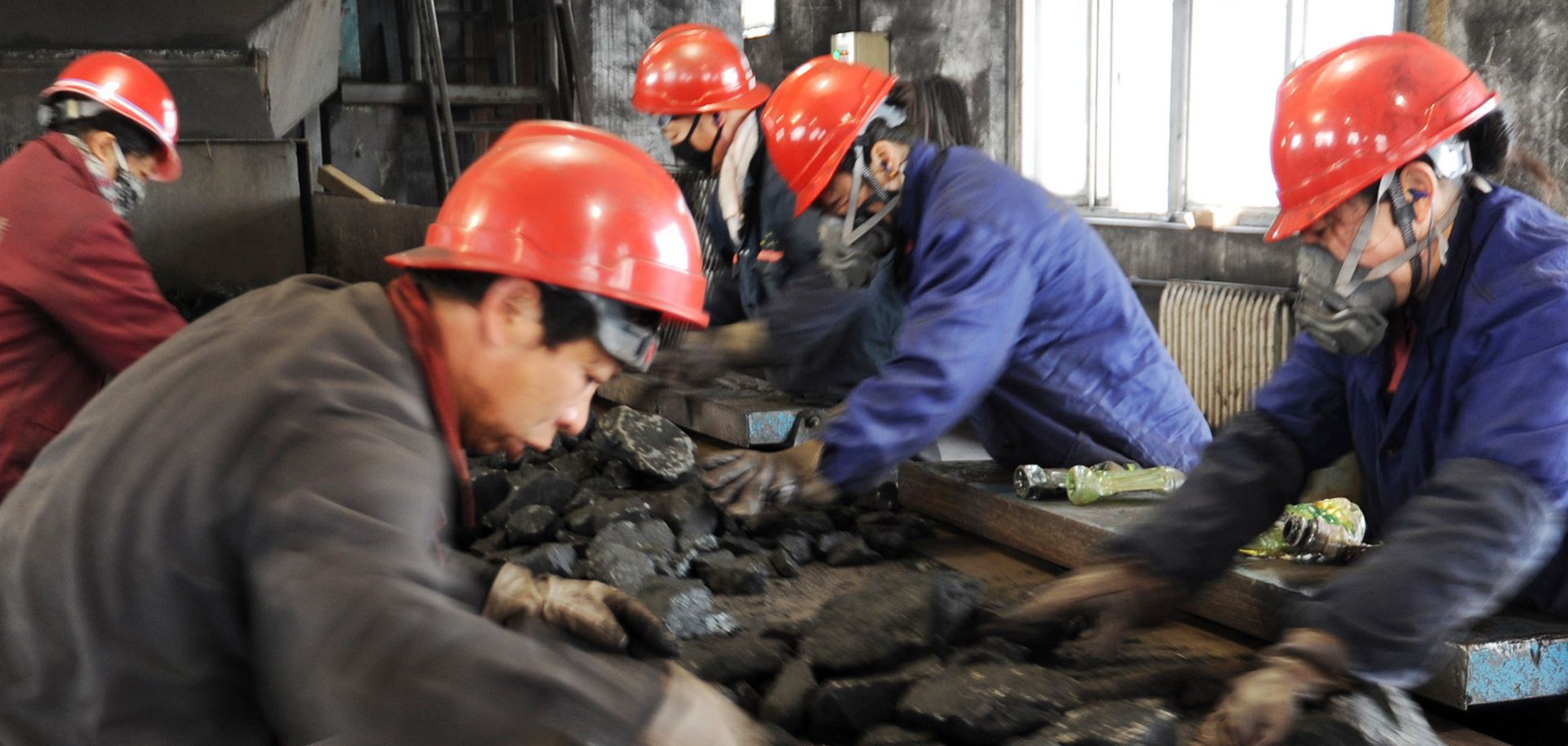ASSESSMENTS
Cheap Coal: Enabling Power Pricing Reform in China
Feb 17, 2015 | 10:00 GMT

(STR/AFP/Getty Images)
Summary
Beset by chronic inefficiencies and shortages in the country's power sector, the Chinese government has long seen the need to let the market set end-user electricity prices. Its plans for reform have been hindered, however, by fears of economic disruption and social unrest that would result from higher electricity prices in an economy that had grown accustomed to cheap power. Rising coal prices in the 2000s strained power suppliers and promised a large gap between the likely market rate of electricity and the rates fixed by the government, making reform unacceptably risky for the Chinese government. But low coal prices over the past year have expanded the profit margins of power suppliers and shrunk the gap between currently fixed power prices and a market rate of electricity pegged to coal. In essence, a window has opened for the government to attempt market reforms in the power sector.
Because the price of electricity has historically been fixed below market rates, costs to electricity consumers are likely to go up over the long run. Liberalization will provoke resistance from state-owned enterprises and entrenched interests that do not want to lose what had been a longstanding power subsidy. To deal with resistance and minimize economic shock, the Chinese government probably will proceed with reform slowly. Since neither domestic nor international prices of coal appear likely to return to pre-2012 levels anytime soon, the Chinese government can afford a gradual approach to power pricing reform.
Subscribe Now
SubscribeAlready have an account?
